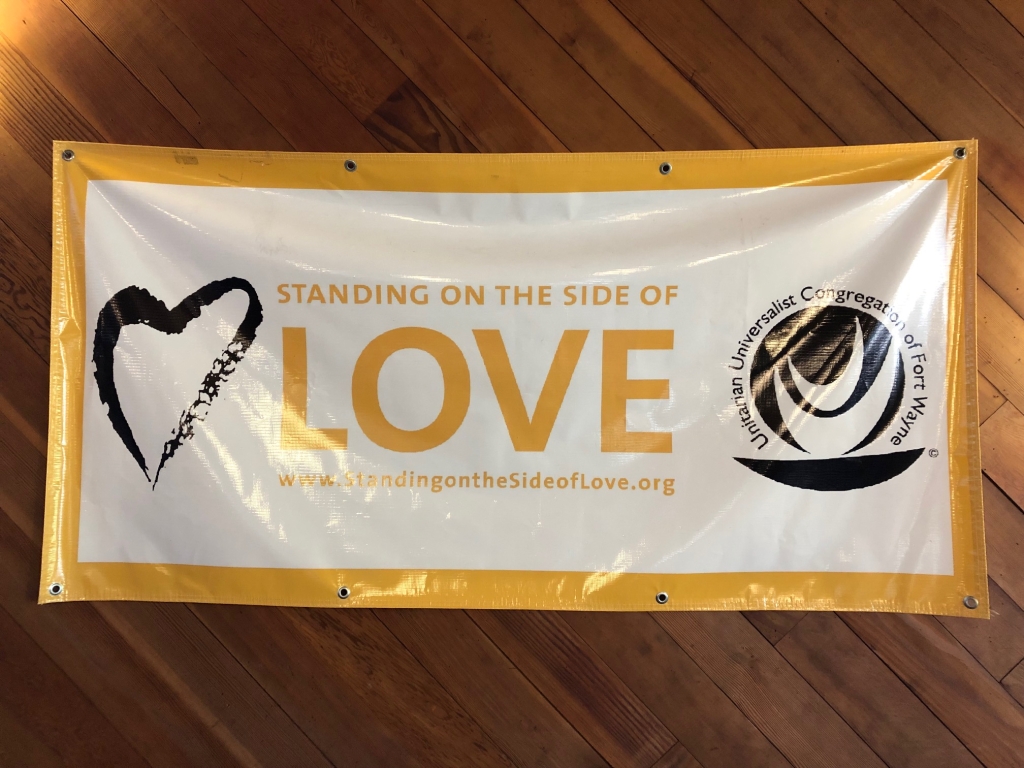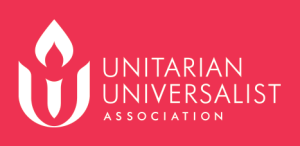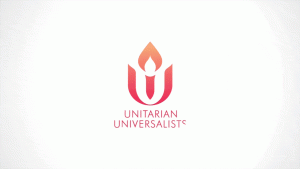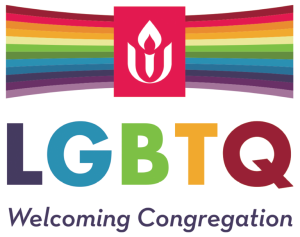The Third Principle: Acceptance of one another and encouragement to spiritual growth in our congregations

An interview with Edith Helbert, who is the manager of a branch library in Fort Wayne with a great diversity of cultures among its patrons. She devotes much of her time to helping young people find their places in the world.
Edith, as you were first visiting our church, how important were the ideals of acceptance and spiritual growth to you?
When I first came here acceptance was important to me, at least theoretically, but spiritual growth wasn’t really on my radar. At that time I identified as an atheist, and I came here primarily looking for community, to work with other people in the kitchen and to make new friendships. Acceptance of one another was the part of the principle that I really paid attention to. It sounded pretty good to me, but I wasn’t really prepared to think too deeply about what it meant. I was here looking for a community of liberal people where I could get involved and be a force for good in a variety of ways.
But as I continued to attend and eventually became a member, I joined a group that met on a week night and discussed philosophy and big question topics like death and the meaning of life. I really enjoyed that exposure to different ideas, and I found that here at UUCFW the lack of judgment from others because I was struggling to believe in anything gave me that permission to figure out what I do believe. So now I would say I have a strong sense of what I see as the divine in the world. I’ve really grown spiritually through my connection to others and my connection to the natural world and my experience of places and rituals.
I’m very glad for that. You devote a lot of your time to helping children learn and grow, in our congregation, at your library and recently as a foster mother. Do you consider that at least partly to be a spiritual calling?
I definitely feel like my work with youth fits in with the third principle. Encouragement to spiritual growth means that it is my responsibility not just to define my own spirituality but to also help others grow and explore their own faith, whatever that looks like. And so exposing youth to different paths and different ideas, helping them find a sense of reverence and rituals that bring them comfort, that is important to me.
Your branch library attracts both Christian and Muslim families. There are ancestries from Africa, Asia and Europe, and there are families that are in the middle class and some in poverty. I’m thinking that facilitating acceptance of one another is part of your mission there. Would that be right?
Well, I don’t know how much of that is informed by my participation in UUCFW and UUA* and how much of it was already there, but I definitely do feel it’s important to work with different populations and be accepting. I mean that as a public librarian, acceptance is kind of our deal. I don’t know which came first, the chicken or the egg.
But they complement each other.
Exactly. Exactly. I once met a new friend from outside of either of these worlds. It was through another friend who said, “You’re going to like Edith; she’s a librarian.” And they said, “Oh, is she a Unitarian?” (Laughs.)
Right. They’re very comparable principles.
I think also you’ve expressed interest over the years in the wider community, beyond just the library and the church. How does the principle of acceptance and spiritual growth affect your involvement in the wider world?
Honestly, I’m not as involved in the wider community as I would like to be. … We’ve been trapped inside for the better part of a year. I’m feeling really disconnected in a lot of ways, but I know that I have people here that will support me when I am ready to do that work again, and I look forward to finding new ways to connect.
To my mind, being involved as a foster mom right off the bat is being involved in the wider world, so I appreciate you making that contribution. But I know that you are interested in learning, as many of us are here, about such issues as racial justice.
Absolutely. And radical acceptance of queer folk. And understanding gender/queer as well as all the different cultures we have here in Fort Wayne. Ableism. I’m interested in making sure that I can accept everybody better and be more welcoming in a variety of ways.
*The Unitarian Universalist Association, the denomination of which UUCFW is a member.



